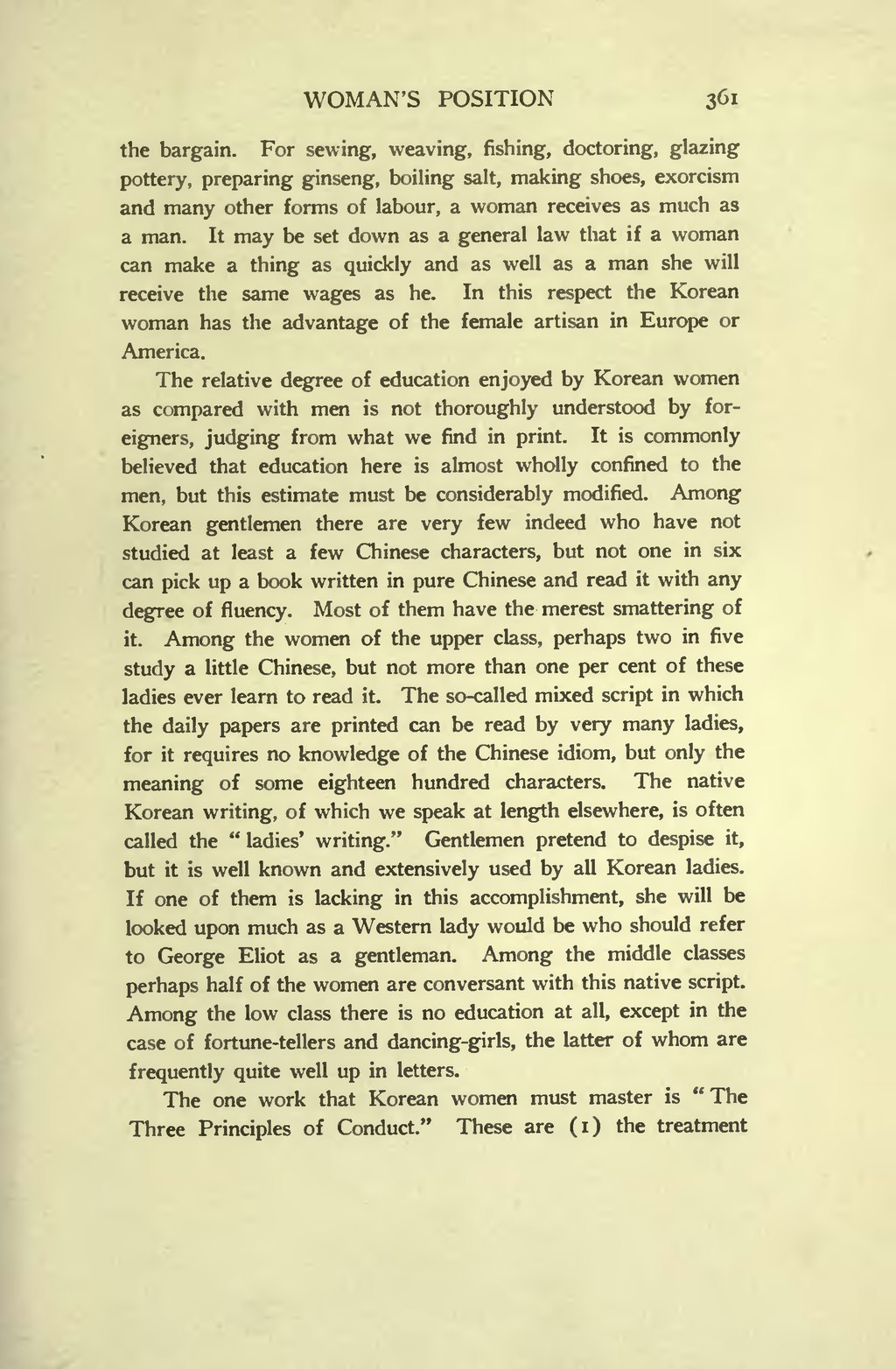the bargain. For sewing, weaving, fishing, doctoring, glazing pottery, preparing ginseng, boiling salt, making shoes, exorcism and many other forms of labour, a woman receives as much as a man. It may be set down as a general law that if a woman can make a thing as quickly and as well as a man she will receive the same wages as he. In this respect the Korean woman has the advantage of the female artisan in Europe or America.
The relative degree of education enjoyed by Korean women as compared with men is not thoroughly understood by foreigners, judging from what we find in print. It is commonly believed that education here is almost wholly confined to the men, but this estimate must be considerably modified. Among Korean gentlemen there are very few indeed who have not studied at least a few Chinese characters, but not one in six can pick up a book written in pure Chinese and read it with any degree of fluency. Most of them have the merest smattering of it. Among the women of the upper class, perhaps two in five study a little Chinese, but not more than one per cent of these ladies ever learn to read it. The so-called mixed script in which the daily papers are printed can be read by very many ladies, for it requires no knowledge of the Chinese idiom, but only the meaning of some eighteen hundred characters. The native Korean writing, of which we speak at length elsewhere, is often called the "ladies' writing." Gentlemen pretend to despise it, but it is well known and extensively used by all Korean ladies. If one of them is lacking in this accomplishment, she will be looked upon much as a Western lady would be who should refer to George Eliot as a gentleman. Among the middle classes perhaps half of the women are conversant with this native script. Among the low class there is no education at all, except in the case of fortune-tellers and dancing-girls, the latter of whom are frequently quite well up in letters.
The one work that Korean women must master is "The Three Principles of Conduct." These are (1) the treatment
